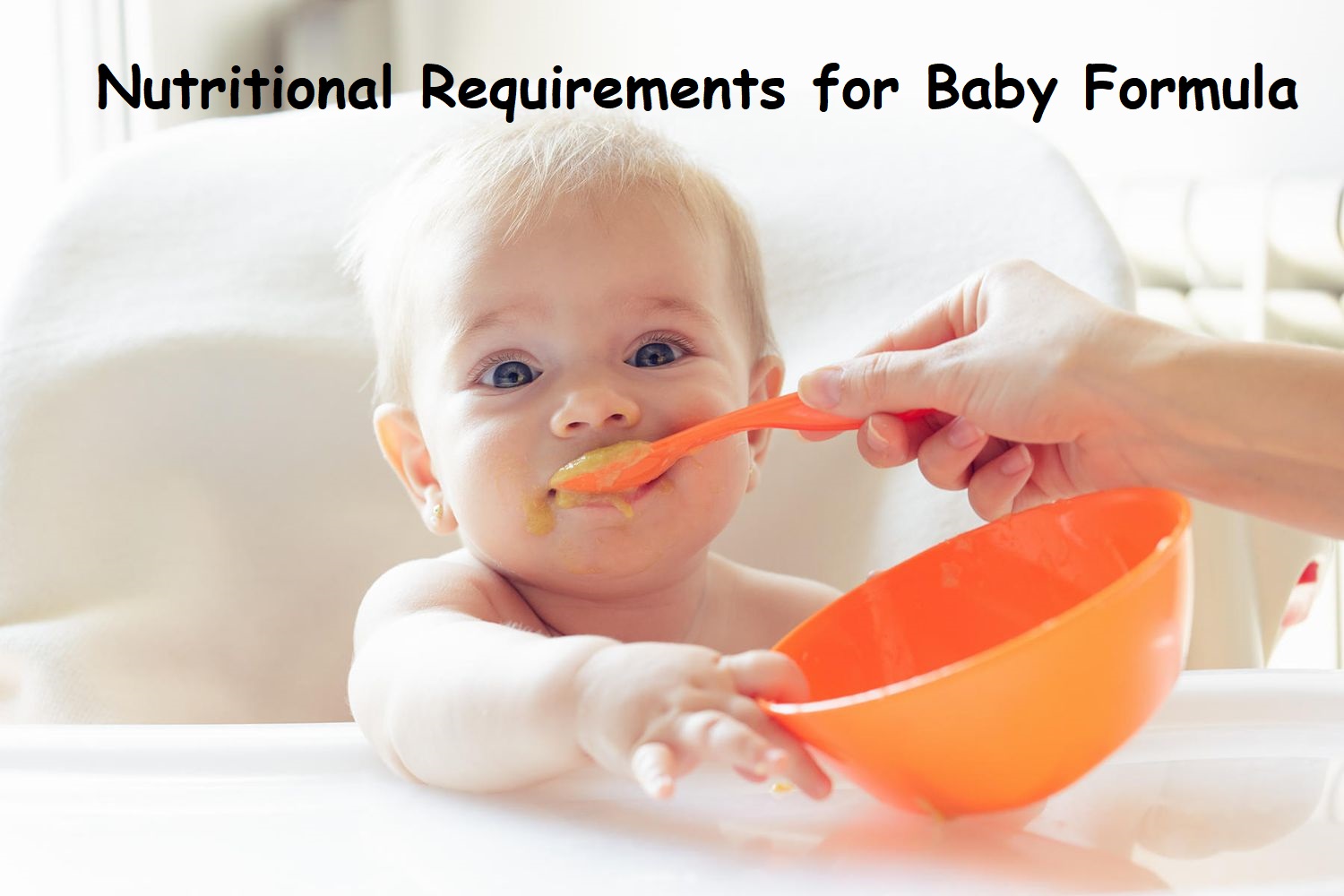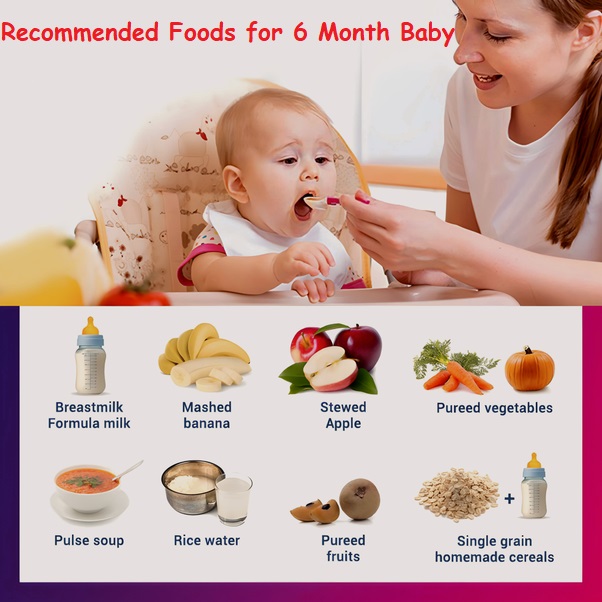Nutritious and safe food options for your growing baby aged between 6 to 12 months. Learn about introducing solids, feeding schedules, and expert tips to ensure your little one receives the best nourishment for healthy development.
Baby First foods 6-12 months:
As your baby approaches the age of six months, you might be eager to explore a whole new realm of flavors and textures. But what exactly should you be feeding them? Let’s delve into the nutritional needs and ideal food choices for babies aged between six to twelve months. Welcome to the exciting world of introducing solid foods to your little one! As your baby approaches the age of six months, you might be eager to explore a whole new realm of flavors and textures. But what exactly should you be feeding them? Let’s delve into the nutritional needs and ideal food choices for babies aged between six to twelve months.
-
Nutritional Needs
1.1 Protein
Protein is crucial for your baby’s growth and development. Opt for sources like pureed chicken, turkey, lentils, or mashed beans to fulfill their protein requirements.
1.2 Carbohydrates
Carbohydrates provide energy for your baby’s activities. Offer soft cooked grains like rice, oats, or quinoa to introduce them to this essential nutrient.
1.3 Healthy Fats
Healthy fats support brain development. Avocado, mashed bananas, and nut butters are excellent choices to incorporate healthy fats into your baby’s diet.
-
Introduction to Solids
Around six months of age, babies are typically ready to explore solid foods. Look for signs of readiness such as sitting up with support, showing interest in food, and being able to swallow.
-
Recommended Foods
3.1 Single-Ingredient Purees
Start with single-ingredient purees such as mashed bananas, steamed carrots, or pureed peas. These simple foods allow your baby to experience individual flavors and textures.
3.2 Combination Purees
As your baby becomes more accustomed to solids, gradually introduce combination purees like sweet potato and apple or spinach and pear. These blends offer a variety of nutrients in one serving.
3.3 Soft Finger Foods
Introduce soft finger foods like cooked pasta, small pieces of ripe fruits, or well-cooked vegetables. These foods encourage self-feeding and help develop your baby’s fine motor skills.
-
Avoided Foods
4.1 Honey
Avoid feeding honey to babies under one year old due to the risk of botulism.

4.2 Cow’s Milk
Cow’s milk should not be introduced as a primary drink until after your baby’s first birthday. Stick to breast milk or formula as their main source of nutrition.

4.3 Added Sugar
Steer clear of foods with added sugar as babies’ taste preferences are still developing. Opt for natural sweetness from fruits instead.

-
Feeding Tips
5.1 Offer Variety
Introduce a wide variety of foods to expose your baby to different tastes and textures. This helps prevent picky eating habits later on.
5.2 Watch for Allergies
Introduce potential allergens like eggs, peanuts, and seafood one at a time and watch for any adverse reactions. Consult with your pediatrician if you have concerns about food allergies.
5.3 Encourage Self-Feeding
Allow your baby to explore and feed themselves with their hands or utensils. This fosters independence and enhances their sensory experience with food.
-
Mealtime Strategies
6.1 Set a Routine
Establish a consistent mealtime routine to help your baby learn when to expect food. Aim for three meals a day with nutritious snacks in between.
6.2 Keep it Messy
Mealtime is an opportunity for your baby to explore and play with food. Embrace the messiness as they discover new textures and sensations.
-
Importance of Hydration
Offer water in a sippy cup during meals to keep your baby hydrated. Avoid fruit juices and sugary drinks, as they provide unnecessary calories and can lead to tooth decay.
-
Recipe Ideas
8.1 Avocado and Banana Puree
Combine ripe avocado and banana in a blender until smooth. Serve immediately or freeze in ice cube trays for convenient portions.
8.2 Sweet Potato and Apple Mash
Steam sweet potato and apple until soft, then mash together with a fork or blend for a smoother texture. This delicious blend is packed with vitamins and minerals.
8.3 Oatmeal Porridge
Cook rolled oats with water or breast milk until creamy. Add mashed fruits like berries or peaches for added flavor and nutrients.
Baby foods |Weight gain Food For 6-12 month Babies | Ragi Apple dates /Gram Banana/ Carrot Potato
Conclusion
Introducing solid foods to your baby is an exciting journey filled with new experiences and discoveries. By offering a variety of nutritious foods, watching for allergies, and encouraging self-feeding, you can lay the foundation for healthy eating habits that will last a lifetime.
FAQs: Baby first foods 4-6 months
- Can I introduce spices and herbs to my baby’s food?
Absolutely! Introducing mild spices and herbs like cinnamon, ginger, or basil can enhance the flavor of your baby’s meals and introduce them to new tastes.
- How do I know if my baby is allergic to a certain food?
Watch for symptoms like hives, vomiting, diarrhea, or difficulty breathing after introducing a new food. If you suspect an allergy, consult with your pediatrician for guidance.
- Can I skip purees and go straight to finger foods?
While some babies may be ready for finger foods earlier, it’s generally recommended to start with purees to ensure they get enough nutrition and can safely swallow.
- How much food should I offer my baby at each meal?
Start with small portions, about one to two tablespoons, and gradually increase as your baby’s appetite grows. Let them guide how much they want to eat.
- Are organic foods necessary for babies?
While organic foods can be beneficial by reducing exposure to pesticides, they’re not essential. Focus on offering a variety of nutritious foods, whether organic or convention

